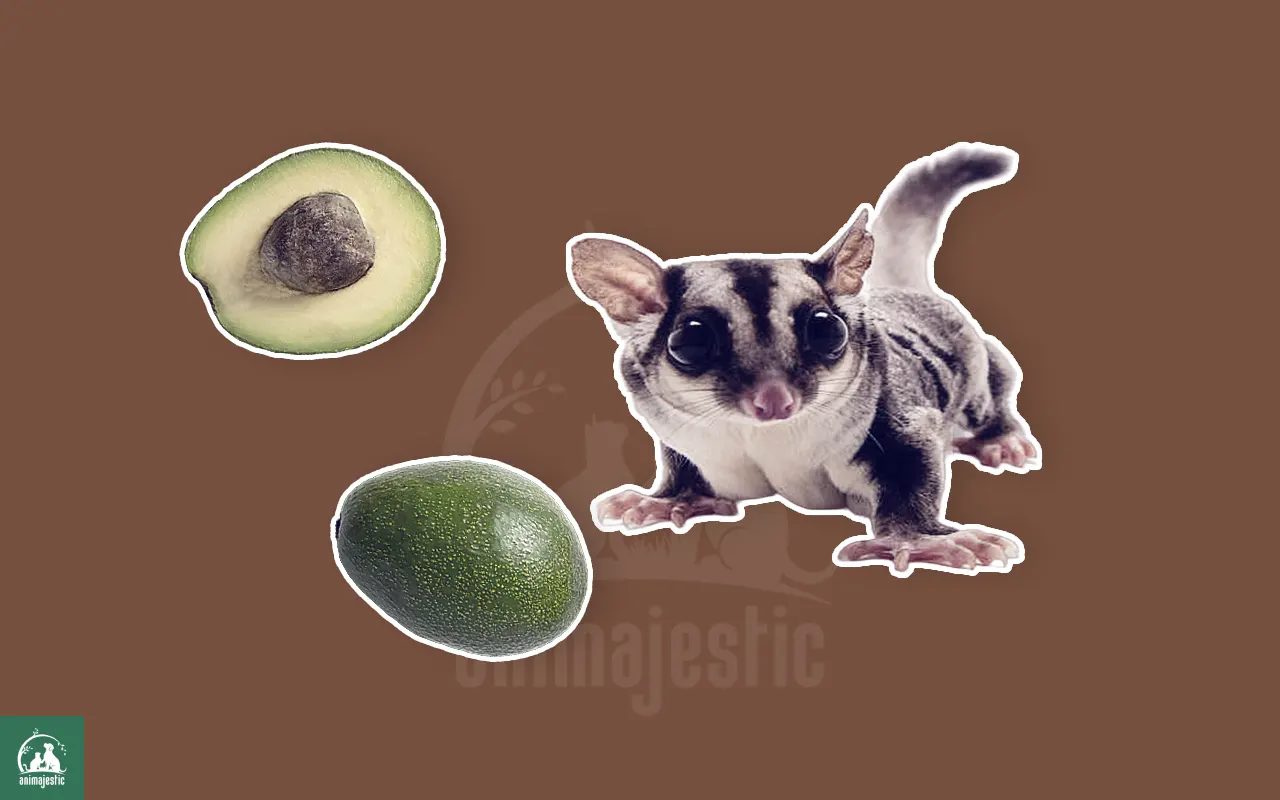At the juncture of curiosity and animal adoration, a question emerges: “Can sugar gliders eat avocados?” So, what do we do at this juncture?
As pet enthusiasts, we are always seeking the best possible diet for our furry companions, and as we step into the domain of these adorable marsupials, the quest for optimal nutrition takes us on yet another interesting journey.
This treasure trove of information is all about unfolding the potential role of avocados in a sugar glider’s diet.
So, read carefully…
Sugar Gliders’ Eating Habits
First, it’s good to comprehend their overall dietary preferences.
Here’s a concise snapshot of what sugar gliders usually feast on:
- Opportunistic Omnivores: Sugar gliders are known to embrace and relish a varied diet that includes a mix of plant and animal matter.
- Sweet Tooth: They harbor a strong fondness for the sweetness of nectar and sap in their natural environments.
- Creepy-Crawly Catchers: Insects form a significant part of the protein intake in their diet.
- Fruit Fanatics: Fruits, owing to their natural sugar content, are often greeted with enthusiasm by sugar gliders.
Understanding this provides essential context as we explore the potential role of avocados in the diets of sugar gliders.
Avocados Nutrients
Avocados, widely lauded as a superfood, bring a unique blend of nutrients to the table:
- Packed with Healthy Fats: Avocados are high in monounsaturated fats, beneficial for cardiovascular health.
- Fiber Storehouse: Among fruits, avocados have one of the highest fiber contents, 7% by weight, making them good for digestion.
- Vitamin and Mineral Haven: Avocados are a rich source of Vitamins K, C, E, and various B-vitamins, along with being densely packed with potassium.
Bearing these nutritional facts in mind, we can begin to understand how avocados might interact with a sugar glider’s dietary needs.
Can Sugar Gliders eat Avocados?
To put it lightly, the answer to this question is not straightforward. Avocados have been a divisive topic among sugar glider owners and experts, with no definitive consensus.
While some pet parents report feeding avocados without any noticeable health concerns, others avoid it due to potential toxicity concerns.
It’s essential to consult an exotic pet nutritionist to grasp how avocados might influence your specific sugar glider’s health.
Potential Advantages and Disadvantages of Avocados
Whether you are reasoning the idea of introducing avocado to your sugar glider’s diet or ruling it out completely, understanding the potential benefits and drawbacks play a pivotal role.
Let’s probe this further.
Potential Advantages
Avocados can potentially offer sugar gliders:
- Healthy Fats: The high monounsaturated fat content in avocados seems beneficial for sugar gliders’ health, considering these fats promote heart health and have anti-inflammatory effects.
- Vitamin Boost: Avocados’ packed nutritional composition implies that they could help enrich a sugar glider’s diet with essential vitamins and minerals.
Potential Disadvantages
In counterbalance, potential harmful implications of avocados should not be overlooked:
- Possible Toxicity: The leaves, stem, skin, and pit of avocados contain persin, a fungicidal toxin, which can be harmful if ingested by small mammals.
- High in Fat: Although the fat in avocados is healthy, the high fat content could lead to weight gain if fed in large amounts frequently.
How to Feed Avocado to Sugar Gliders
If, after consulting a vet, you decide to introduce avocados to your sugar glider’s diet, follow the instructions given compared to these guidelines:
- Serve Sparingly: Given the high fat content, avocados should be offered as an occasional snack rather than a staple.
- Remove Risky Parts: Always remove the skin, pit, and any part of the plant to avoid potential toxicity.
- Watch for Reactions: Keep a close eye on your sugar glider for any changes in behavior or health after consuming avocado.
Delightful and Nutritious Alternatives
Still unsure about avocados? Here’s a banquet of alternatives:
- Berries and Apples: These fruits are packed with nutrition, are non-toxic, and are generally approved by sugar gliders.
- Leafy Greens: Spinach, lettuce, and other greens can add a nutritious crunch to your sugar glider’s diet.
- Insects: Consider offering mealworms or crickets for a protein-rich snack that aligns with their natural dietary habits.
The Balance and Diversity for Optimal Diet
Achieving the perfect dietary balance for sugar gliders requires consistently catering to their omnivorous nature and monitoring their nutritional intake:
- Embrace Variety: Keep their diet diverse with an optimal mix of proteins, carbohydrates, and fats.
- Limit Fatty Foods: Avocados and other fatty foods should be limited to avoid unnecessary weight gain.
- Vigilant Eye: Always keep a close eye on the health and behavior of your sugar glider, adjusting their diet as needed.
In Summary
Navigating through the intertwined relationship between sugar gliders and avocados, I have remained open to the potential benefits and considered the possible risks.
The question, “Can sugar gliders eat avocados?” has unfolded into a somewhat complicated answer: they could, but these green delights should be approached with abundant caution.
In their quintessential joie de vivre, sugar gliders have one way or the other teach us the importance of balance and diversity in life (and diet).
As you gauge your sugar glider’s response to a lick of smooth, creamy avocado, know that it’s the epitome of your understanding of their unique dietary needs.
Each tantalizing treat your sugar glider enjoys, be it a piece of apple or a morsel of avocado, becomes a testament to the bond you share—a bond strengthened through thoughtful care and delicious shared experiences.
